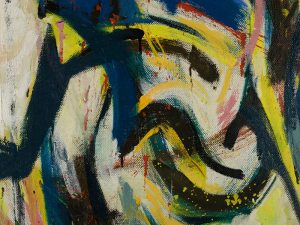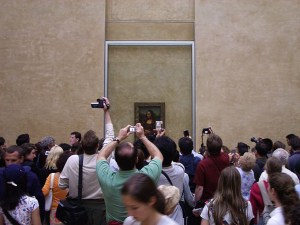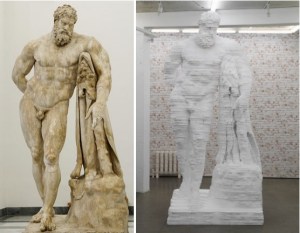Lost, stolen, restored, repackaged and photographed… this week our writers have been looking at how we care for and respond to our cultural inheritance.
TEFAF 2014
 TEFAF draws to a close this weekend: over the course of the fair, we’ve discovered highlights and hidden gems from all periods. Mary Anne Goley, Imelda Barnard and Thomas Marks have all reported back with their selections.
TEFAF draws to a close this weekend: over the course of the fair, we’ve discovered highlights and hidden gems from all periods. Mary Anne Goley, Imelda Barnard and Thomas Marks have all reported back with their selections.
Lost and restored
 Jonathan Griffin was impressed this week by the Getty’s restoration of Pollock’s Mural. Other paintings haven’t fared so well – as the search reopens for a missing Klimt, Jack Orlik asks how we should respond to the loss of art.
Jonathan Griffin was impressed this week by the Getty’s restoration of Pollock’s Mural. Other paintings haven’t fared so well – as the search reopens for a missing Klimt, Jack Orlik asks how we should respond to the loss of art.
Tupac Shakur, Allen Ginsberg, and Jackson Pollock in Russia
 ‘The only things that interest me in the US are Tupac Shakur, Allen Ginsberg, and Jackson Pollock. I don’t need a visa to access their work.’ Russian official Vladislav Surkov’s unexpected response to US sanctions…
‘The only things that interest me in the US are Tupac Shakur, Allen Ginsberg, and Jackson Pollock. I don’t need a visa to access their work.’ Russian official Vladislav Surkov’s unexpected response to US sanctions…
To shoot or not to shoot…
 While some museums encourage photography, others are notoriously camera shy. Estella Shardlow looks again at the problem of tourist snaps in galleries, where nobody seems clear of the rules – least of all the museums themselves.
While some museums encourage photography, others are notoriously camera shy. Estella Shardlow looks again at the problem of tourist snaps in galleries, where nobody seems clear of the rules – least of all the museums themselves.
Repackaged: Matthew Darbyshire’s polystyrene statues
 ‘It was in the Royal Academy Schools corridor, where for three years I’d take fag breaks at his feet and admire those thundering thighs!’ James Cahill spoke to Matthew Darbyshire about his polystyrene sculptures and the next steps for contemporary art.
‘It was in the Royal Academy Schools corridor, where for three years I’d take fag breaks at his feet and admire those thundering thighs!’ James Cahill spoke to Matthew Darbyshire about his polystyrene sculptures and the next steps for contemporary art.

The Week’s Muse: 22 March
Two Hercules: the Farnese Hercules from the Baths of Caracalla in Rome; and Matthew Darbyshire's polystyrene 'Hercules' (2014). (Second image courtesy Herald St, London)
Share
Lost, stolen, restored, repackaged and photographed… this week our writers have been looking at how we care for and respond to our cultural inheritance.
TEFAF 2014
Lost and restored
Tupac Shakur, Allen Ginsberg, and Jackson Pollock in Russia
To shoot or not to shoot…
Repackaged: Matthew Darbyshire’s polystyrene statues
Unlimited access from just $16 every 3 months
Subscribe to get unlimited and exclusive access to the top art stories, interviews and exhibition reviews.
Share
Recommended for you
Hidden Treasures at TEFAF
Some of Maastricht’s masterpieces are easily overlooked
Apollo Readers Event: Private View at the V&A
Experience the life and work of William Kent, the most prominent architect and designer of early Georgian Britain
Affected Taste: William Kent at the V&A
How do you like your Georgians? William Kent’s designs come with a liberal coating of gilt